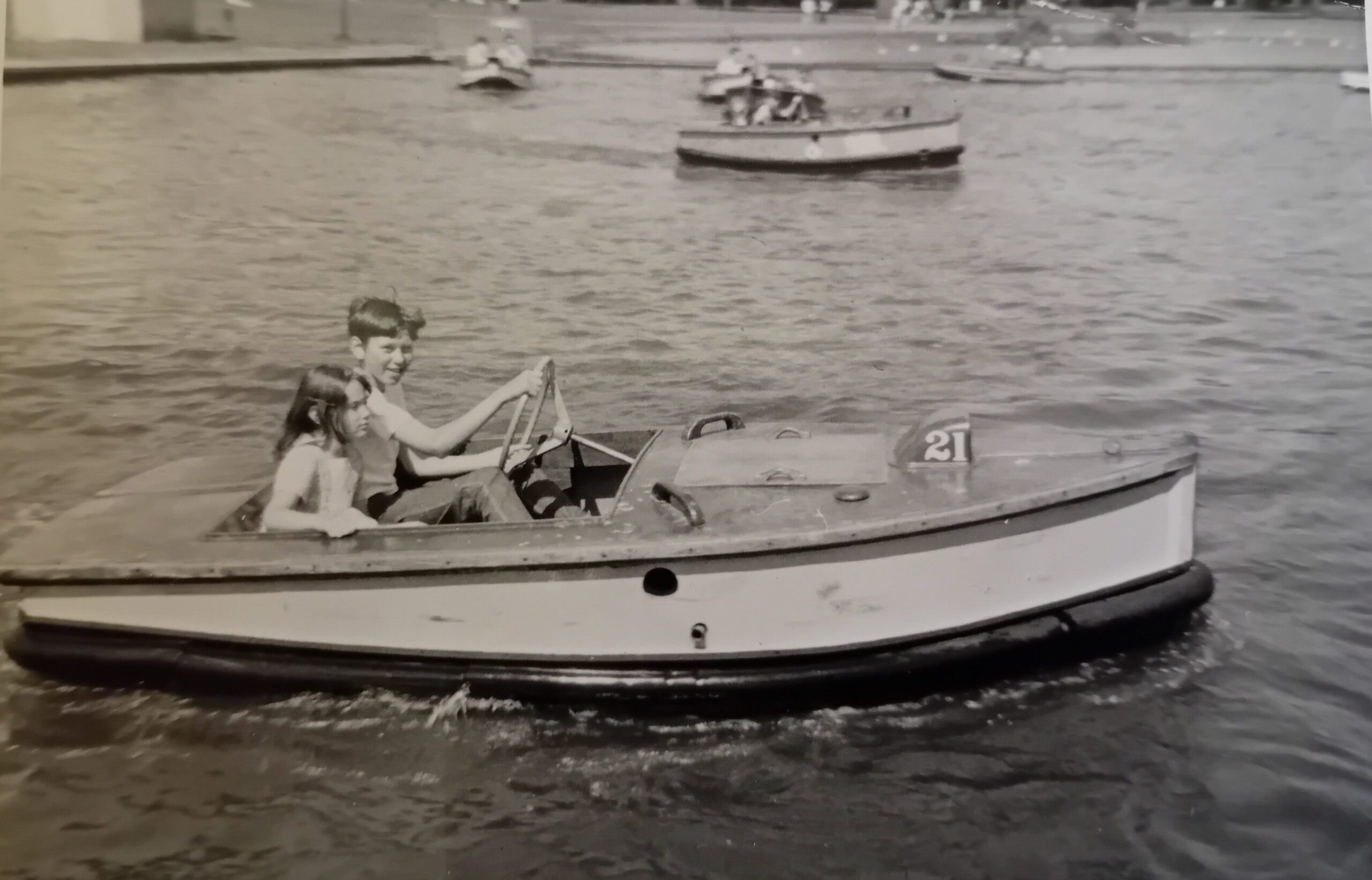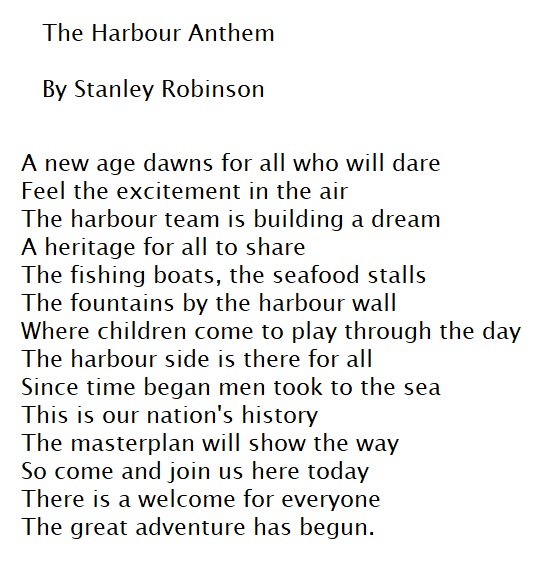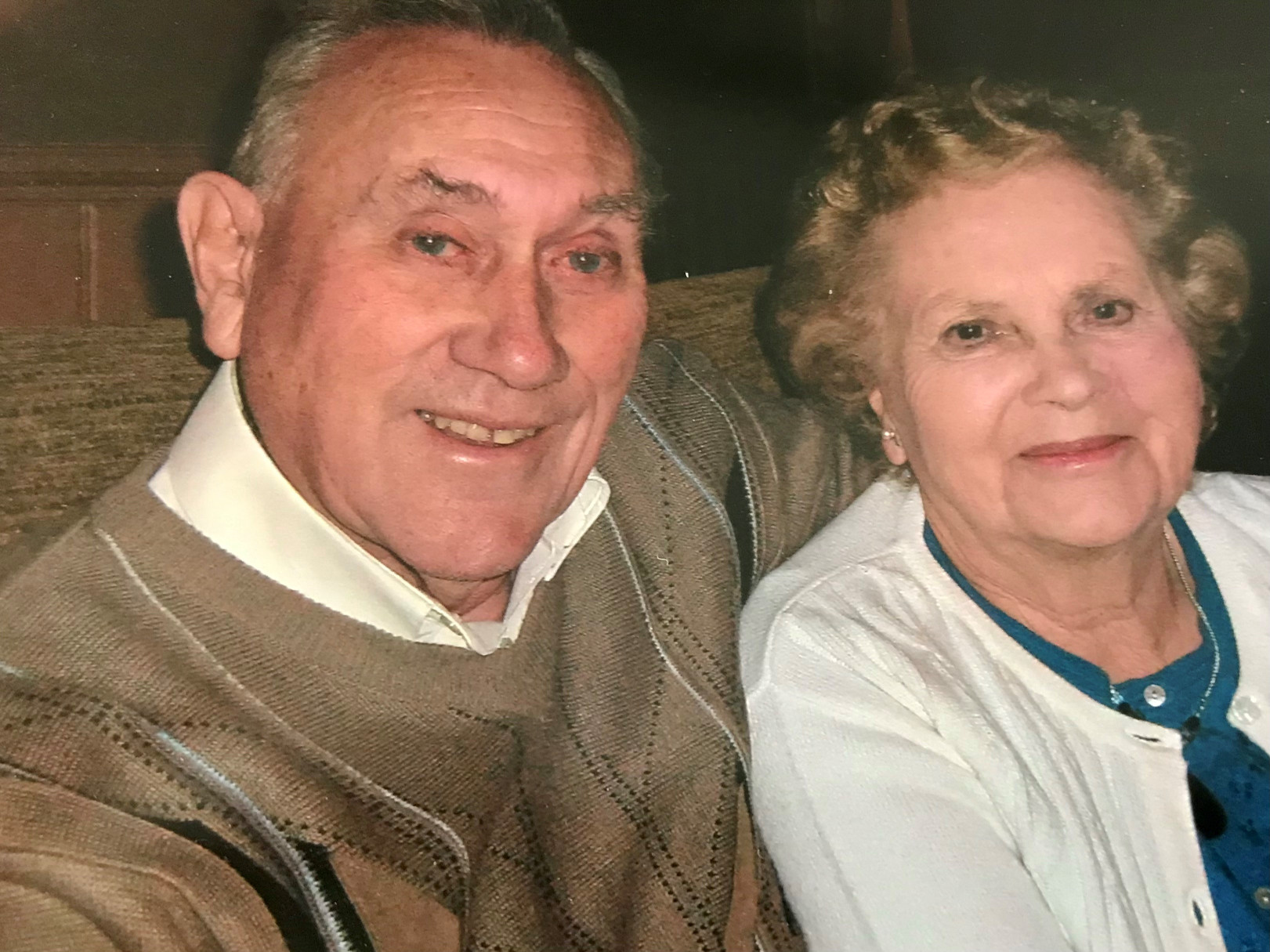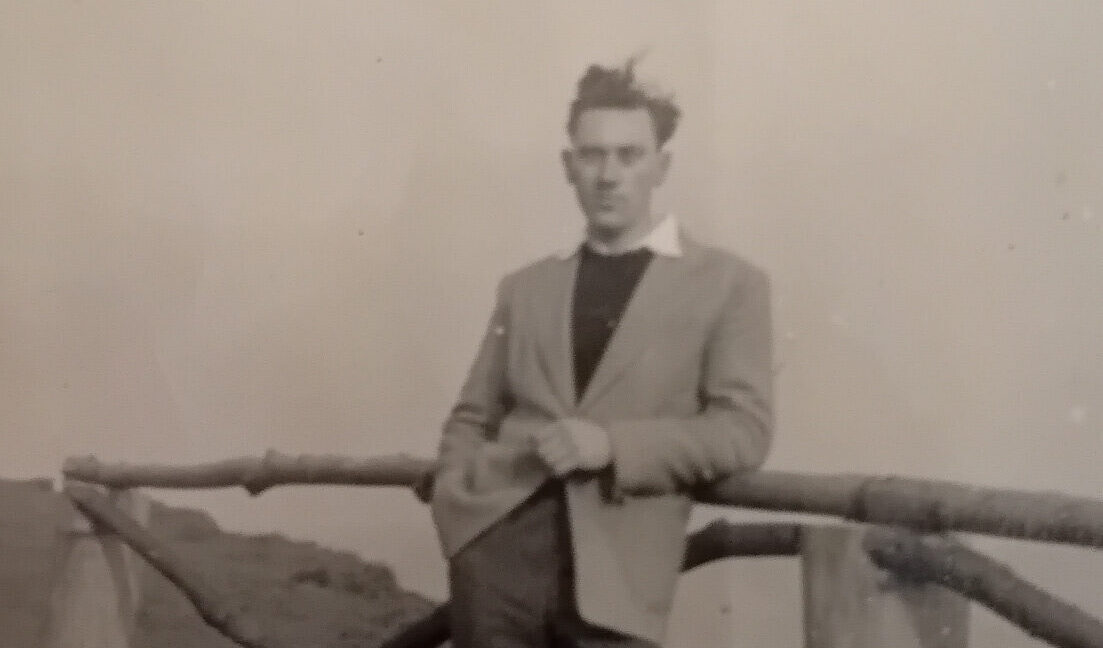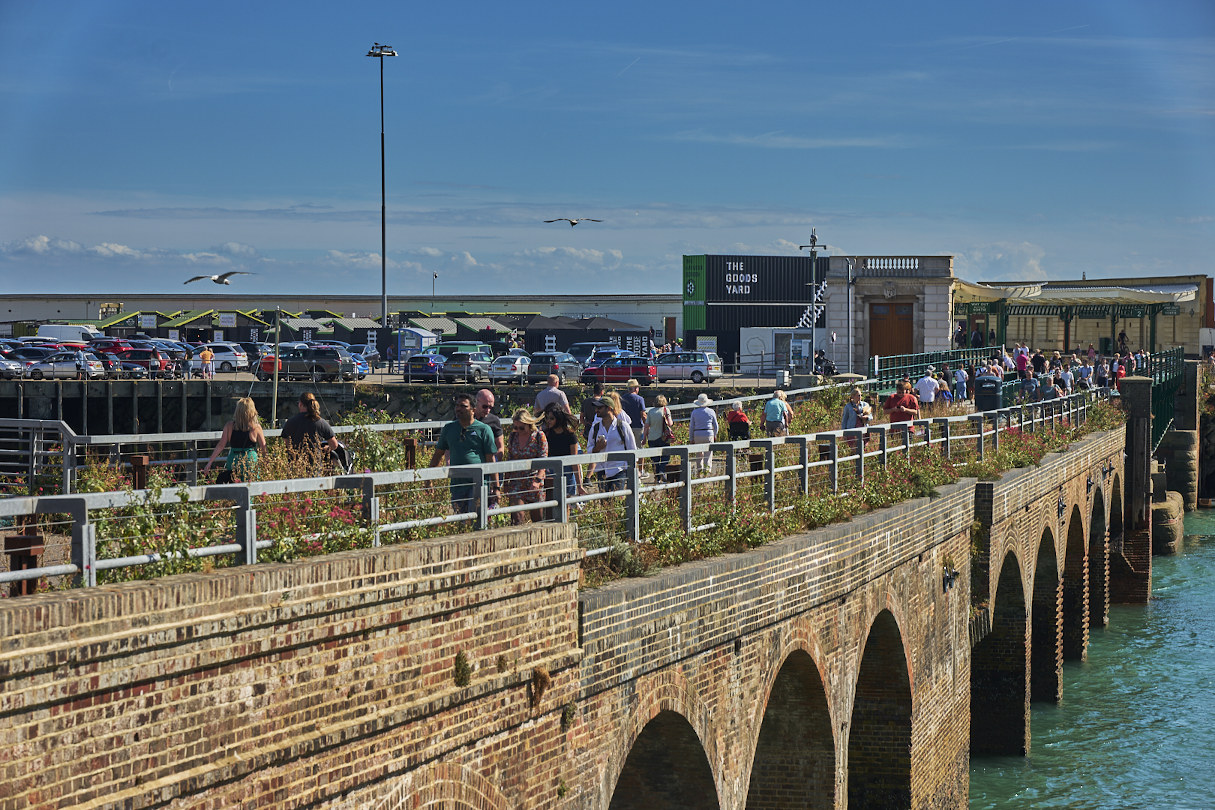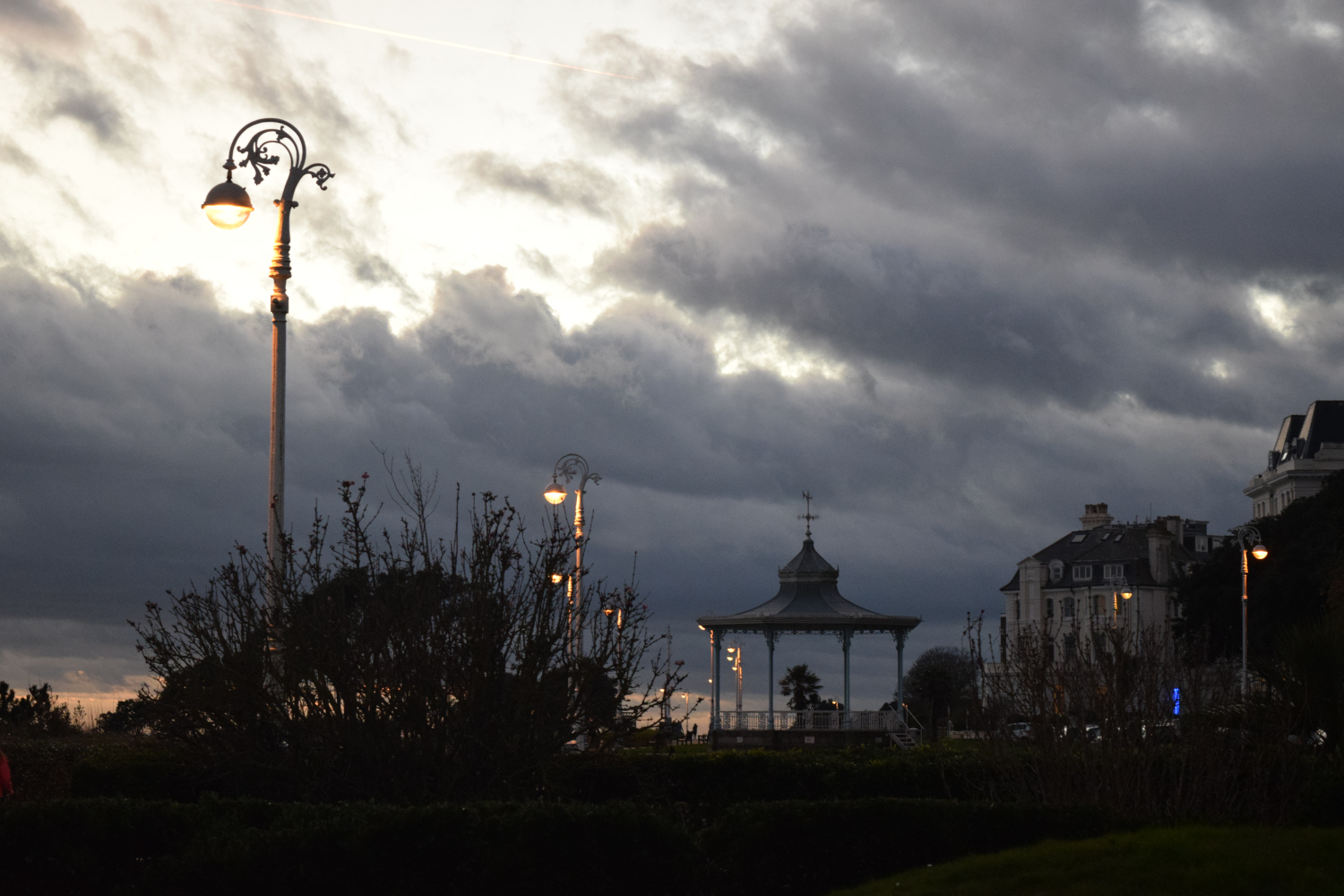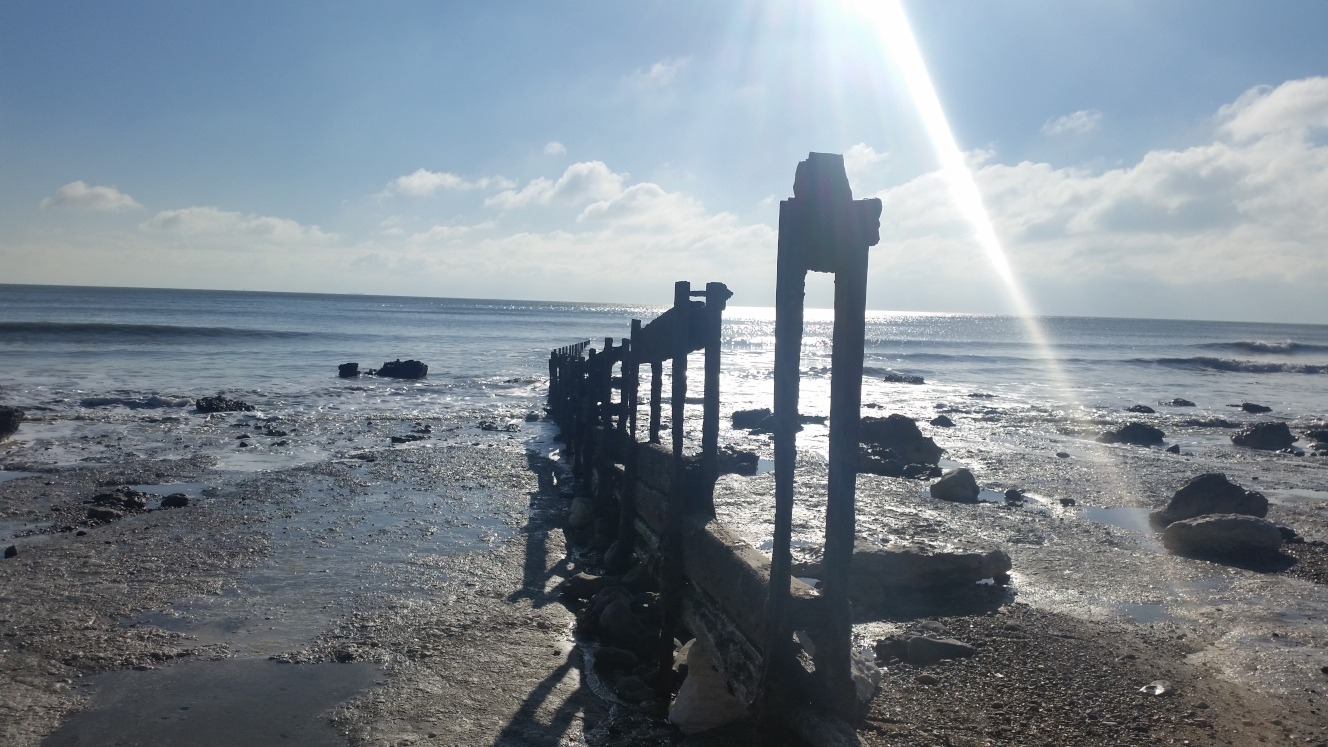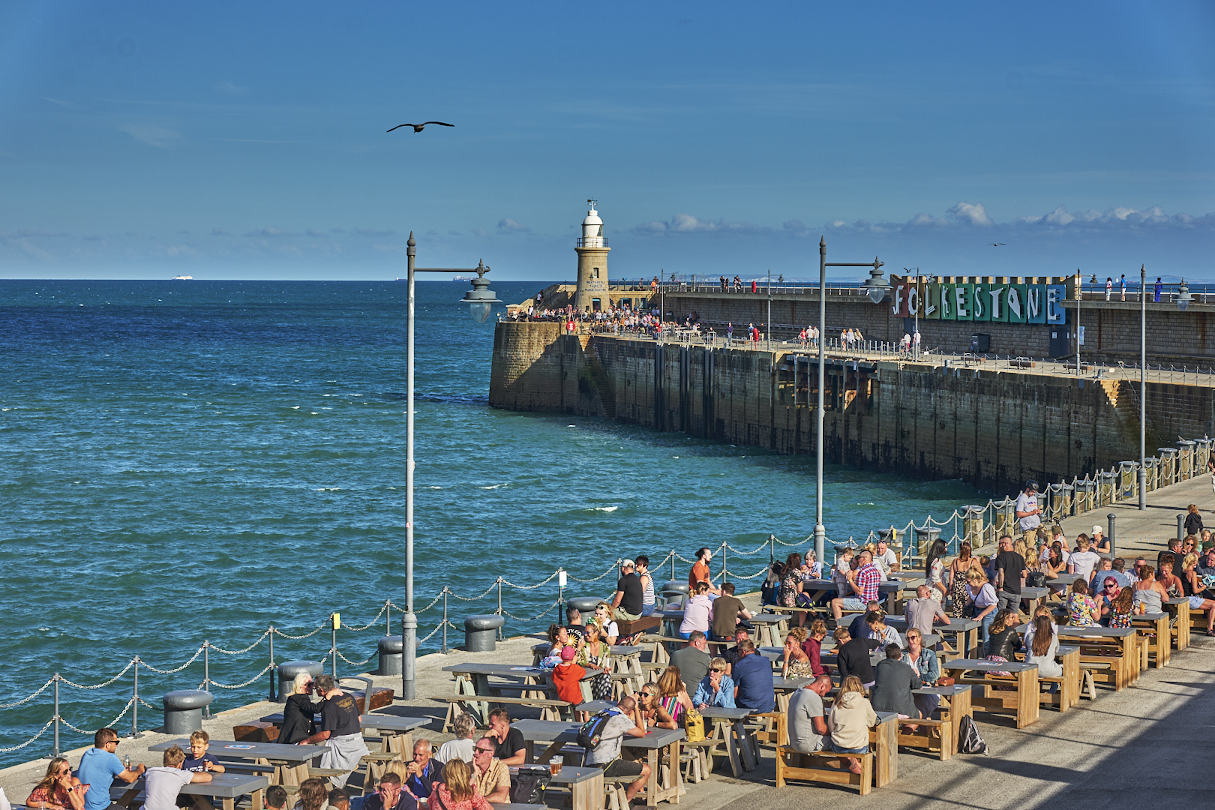Live
stanley Robinson – Living History
At 97 years of age, Stanley Robinson has seen a lot of changes in Folkestone. He was evacuated from Folkestone at the beginning of WW2, and then by the end was able to play a part as a member of the Home Guard in Sandgate. Since then, working and living across the town he’s seen it rise and fall and rise again. Folkelife went to discover what inspires his newfound skill of writing poetry.
“I was born in Sandgate, and lived there with my parents. My mother died when I was 9, she was only 49, and I continued to live with my father until he died when he was 56. It just shows you the difference in life expectancy doesn’t it, between then and now.
“I went to Morehall school in Cheriton but was evacuated during the war which I hated! We were sent to Abergavenny in Wales and we were stuck in the middle of nowhere. It was very dull, and I realised that I am not a country boy! I like the town, that’s where things happen. We were evacuated because at that time, at the beginning of the war, Folkestone really was in the firing line. They thought that Hitler would come over and occupy Britain. And there was an awful lot of bombing and planes flying over that meant it was quite dangerous to be here. So they sent us all off to the country in Wales. I couldn’t wait to get back!”
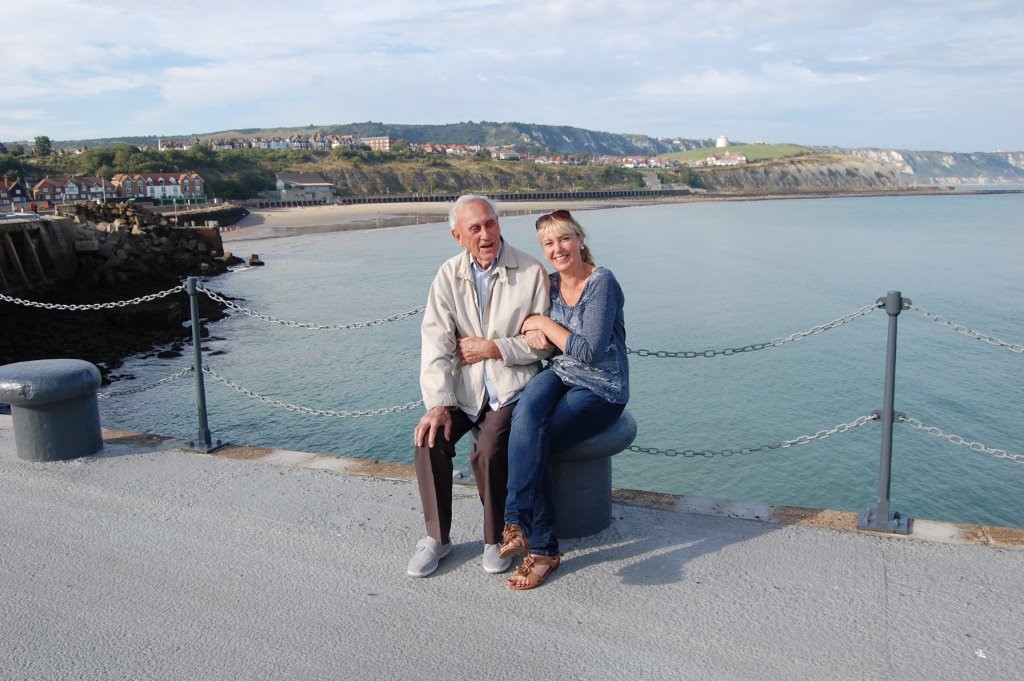
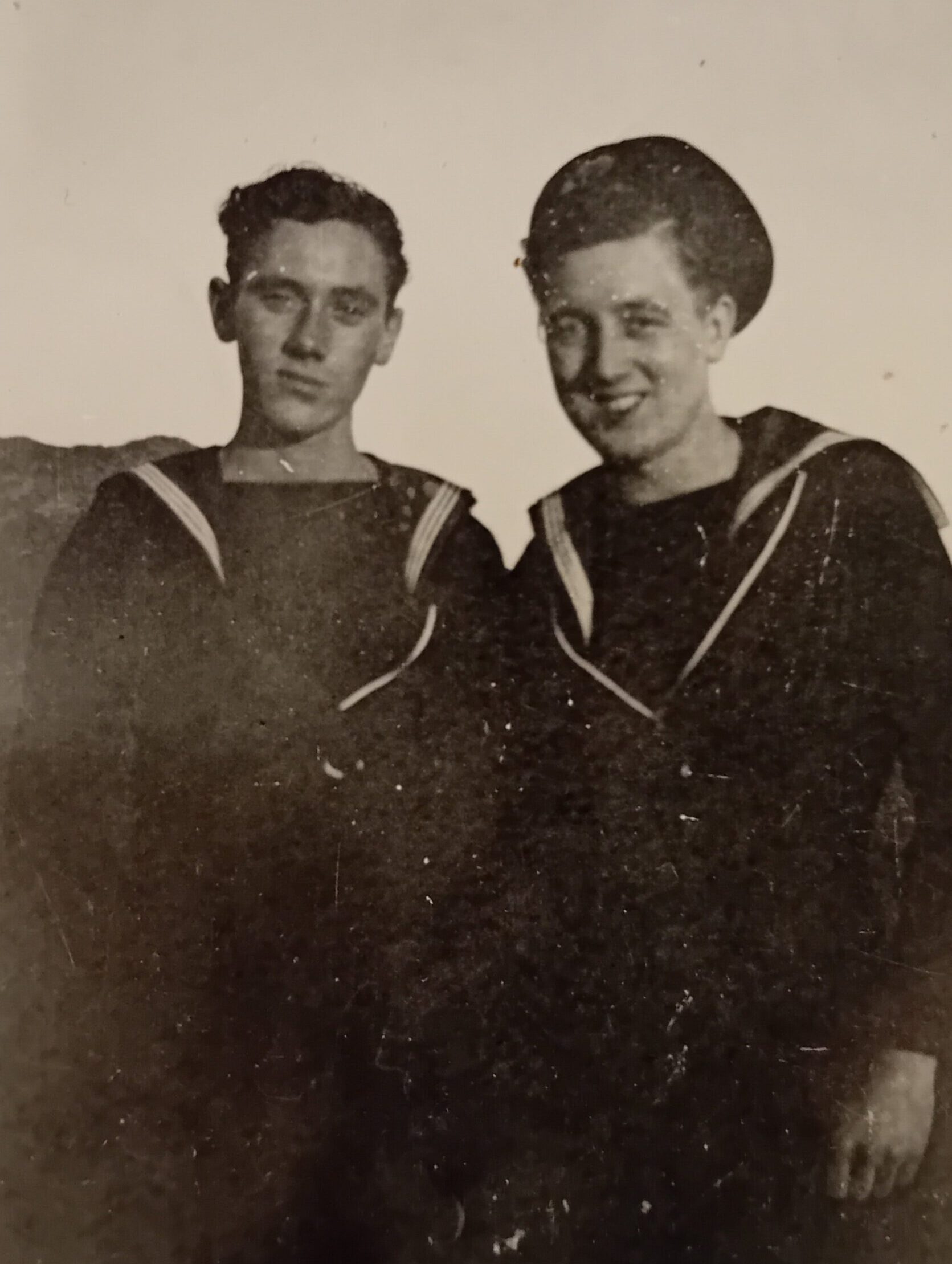
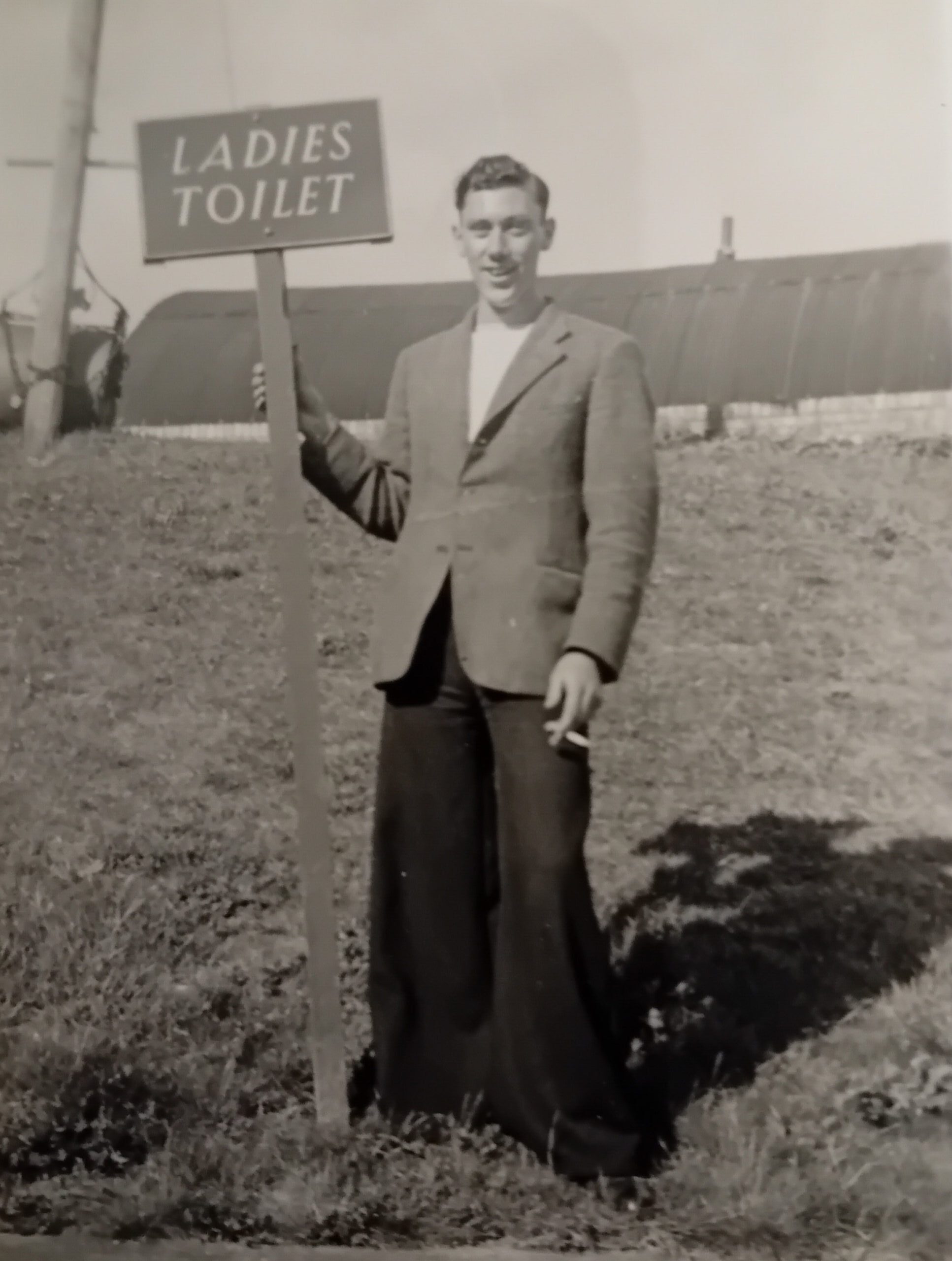
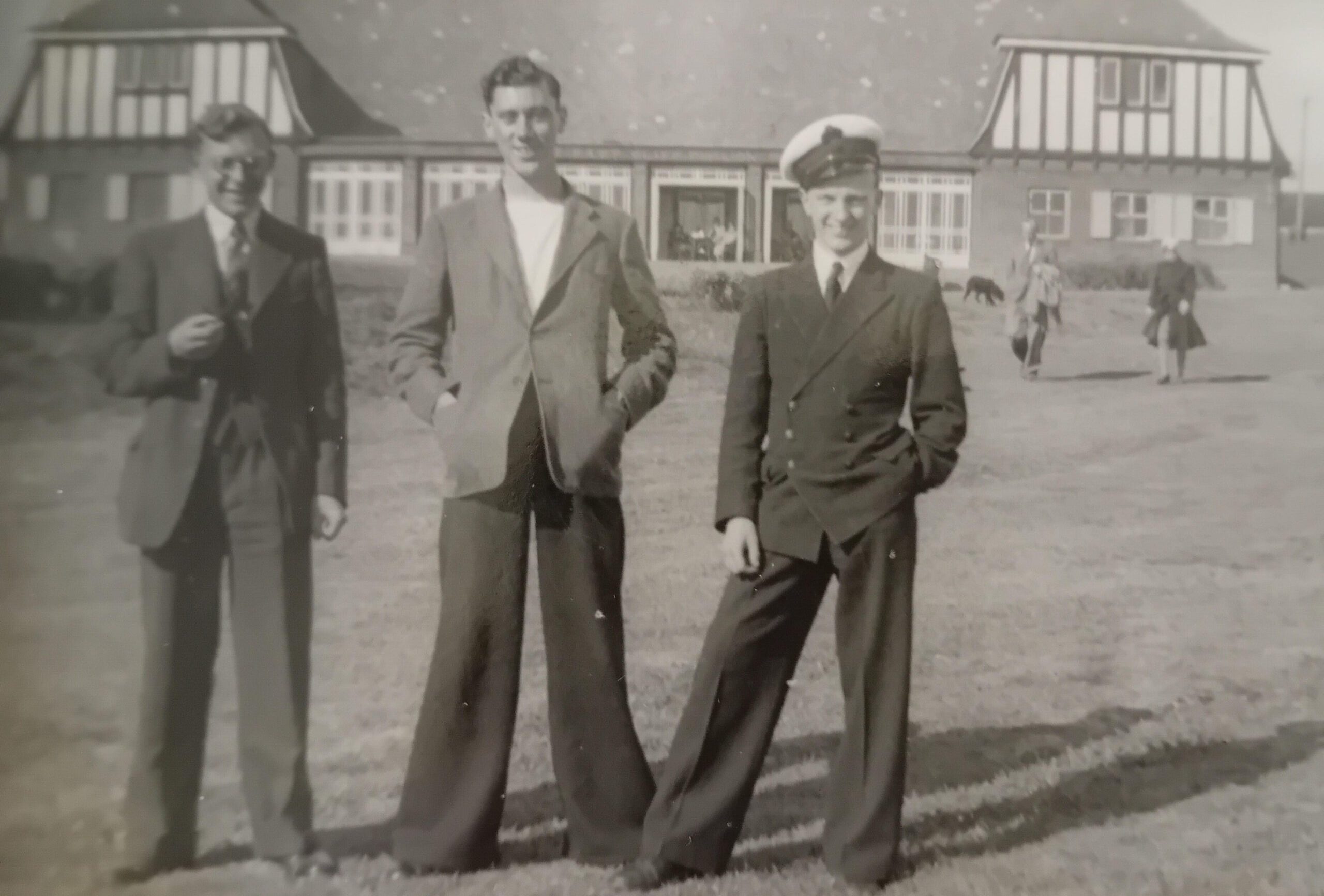
folkestone and world war ii
“My father had been in the Army and had done quite well there. He spent 21 years in service and then commuted his pension and opened up a hardware shop in Sandgate. 86a Sandgate High Street. We were there for a little while but it didn’t do all that well. He put it down to Woolworths opening up and being able to sell things much cheaper than he could do. So he spent the rest of his working life doing odd jobs and handy-man things for people. He went to live in a place called Bordon in Hampshire and worked for the Army there. I can remember him telling me he had to be dug out of an air-raid shelter which must have shaken him up somewhat. Shortly afterwards though he died, so I went to live with some neighbours.
“Thankfully we didn’t stay long in Wales. We left in the July 1940 and came back the following February. That was after the Battle Of Britain had been fought. That would have been interesting to be in Folkestone at the time, but also dangerous. Winning that battle of the skies meant that Hilter wasn’t able to invade the UK. It meant that we were saved that occupation that was happening across northern Europe.”
the home guard
“Like many other people during the war, I wanted to help in some way, and yes, I signed up before I was legally of age. I joined the Home Guard in Sandgate. I was 16 and I should have been 17 but my pals were joining up who were a bit older than me and I thought it would be a good idea. Everyone had an identity card that had your birth date on it. I had a fountain pen and managed to make a blob over the 7 of 1927. The man questioned what that number might be and so I told him it was a 6 and he didn’t have an issue with that!
“We mostly did patrols along the coast at night-time. Sandgate Castle was the headquarters, and every 2 hours, 2 blokes would walk along the rail road to the lift house, and then back the other way to Seabrook, to the Sea Point Café and sign the book in there. We were looking out across the water to see if anyone would be crossing over and landing here.”
navy life
“I got my calling up papers on my 18th birthday. My father had been in the Army but that didn’t appeal to me so I joined the Navy instead. Not sure why, I can’t swim, but then they have ships, so you don’t need to! I was an armourer looking after the aircraft guns, but I didn’t really like working in the Navy so I left after a couple of years.
“I’ve worked in lots of jobs across the town, met my wife, June, and we were married for 70 years. We have two children, four grandchildren and now 5 great-grandchildren as well. My wife sadly died and I miss her so very much.”
old and new folkestone
“I can remember walking down to Folkestone from Sandgate as a child. We would walk along and play at the Rotunda which was quite fun. I went down there about 4 years ago and the place has changed, I couldn’t believe it was Folkestone! It’s wonderful to be able to walk along the Harbour Arm, which you could never do when it was a port. I had never been along there until they had renovated the station and platforms. I got really intrigued though and started to go down their regularly and decided to write a poem about what I was seeing. It’s such a good idea.
“I then wrote the next poem that was inspired by the soldiers walking along that platform going off to the First World War. That was taken up by Professor Helen Brooks who organises the Walking With Ghosts events that happen at the Harbour each Remembrance Day. I only started writing poetry when I was 90, and now have over 50 notebooks with poems in.”
Love
“I’ve just finished a poem called Love. I recite them because my eyesight isn’t so good. I learn them and then can write them down with a big thick pen. Love goes something like this…
What is Love? A friend once said to me
Perhaps love is not to be explained
But love once lost may seldom be regained
Love may not often be declared
The proof if proof be needed
Will be a lifetime shared
Love is just to be there
Whenever there is need
And think of others first
That may be love indeed
If you ask “what is love?”
You may well have much to learn
You will give your heart and soul
And seek for little in return
Love is more than just a game
It will see us as we are
And may love us just the same
Where then is that love?
We think of you each morning
From the dawning of the day
We will never be apart
For you are never far away
Together we would share whatever life may send
And so we won Life’s greatest prize
They call it Love my friend!
